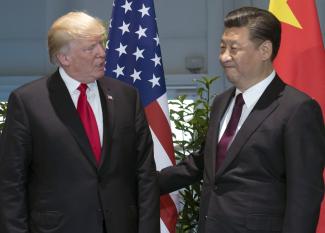Governance
Democracy is better

After the turn of the Millennium, western observers tended to argue that modernisation and the forces of globalisation would eventually make China a democracy. Many now consider that argument naïve. Some even say it has been proven wrong, and a few probably even think that the rise of Donald Trump in the USA indicates the triumph of authoritarianism.
Such thinking is misguided. For many reasons, democracy is still preferable. One is that most dictatorships are not benign, and China itself is an example. The country has been under Communist rule since 1949, and Mao Zedong was a brutal leader. In his era, the masses stayed utterly poor, and millions died due in domestic upheavals such as the “great leap forward” and the “cultural revolution”.
Yes, things changed after Mao’s death, but probably not forever, as recent trends under Xi Jinping suggest. Led by Deng Xiaoping in the 1980s, the regime started to liberalise certain sectors and even invited foreign investors. The economy took off, growth rates stayed high for decades, and poverty was reduced dramatically. The regime was autocratic, but it appreciated human rights in principle, arguing that it was prioritising economic and social rights over political rights.
Today, however, human rights are not discussed at all any more. Xi’s autocratic grip on power keeps getting tighter. Inequality is growing. Military spending is up, and the government is increasingly prone to sabre rattling. The comparatively benign years auf of Communist rule seem to be over.
The truth is that, for several reasons, strongman rule will do little to improve China’s socio-economic fortunes. Having masses of people controlled by the secret police is expensive, but does not contribute to a nation‘s prosperity. Moreover, oppression discourages every entrepreneur or innovator who does not have a direct mandate from the government. Yet another issue is that, where public debate is hushed up, policymakers only become aware of social or environmental problems very late – if they don’t prefer to suppress bad news entirely. On top of all this, corruption thrives in the lack of checks and balances, no matter how noisily the top leaders may claim to be fighting it.
For these and related reasons, despotic rule is actually quite inefficient. However, it does serve one purpose well, and that is enforcing an oligarchic order. Such cartels of power do not develop their nations. They exploit them, and whomever else they can exploit. Their military prowess serves to intimidate their people and project a sense of global power at the same time. In this sense, China unfortunately seems to be becoming ever more like Russia.
Germany has experienced two totalitarian dictatorships in the 20th century. The lesson of the Nazis was that extreme abuses of power lead to extreme disaster. Later, Communist East Germany proved unable of competing with West Germany in any field, apart from doping-fuelled sports. And if there are any lessons from Donald Trump’s oligarchic arrogance and America First rhetoric yet, it is certainly that his nation’s global influence has not benefitted – and that free media and public protests actually make it harder to implement destructive ideas.













